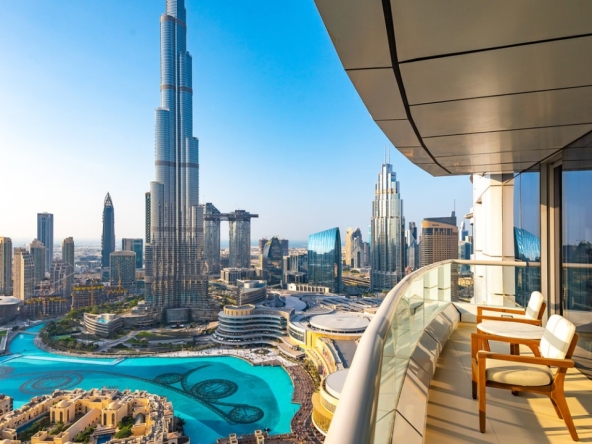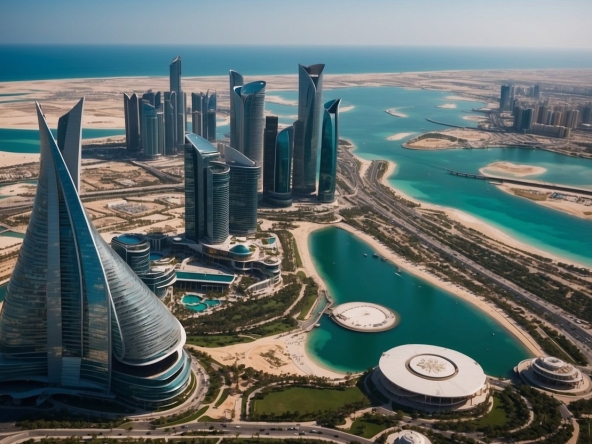The Middle East has been plagued by conflicts for decades, with the Israel-Palestine conflict being one of the most longstanding and significant. These conflicts have far-reaching implications, not only on the political and humanitarian fronts but also on regional economies and industries. One sector that is closely watched during these periods of instability is the real estate market, particularly in countries like the United Arab Emirates (UAE). In this article, we will explore the potential impact of the Middle East conflicts on the UAE real estate market, examining both the immediate effects and the long-term trends.
Global Economic Impacts
The Israel-Palestine conflict has wide-ranging implications for the global economy. One of the most immediate effects is the fluctuation in oil prices. As tensions escalate, there is often a spike in oil prices due to concerns over supply disruptions in the region. Conversely, when the conflict shows signs of de-escalation or resolution, oil prices tend to stabilize. This volatility can have a ripple effect on various industries and economies worldwide.
The Bank of Israel has already revised its growth forecast downward, citing the impact of the conflict on the country’s economy. This indicates that the conflict is not confined to the Middle East region alone but has broader implications for global economic stability. As tensions persist, investors and businesses may become more cautious, leading to a slowdown in investment and economic growth.
UAE Real Estate: A Resilient and Growing Market
Despite the challenges posed by the Middle East conflicts, the UAE real estate market has shown remarkable resilience and continues to experience growth. The country’s non-hydrocarbon sector, which includes industries like real estate, tourism, and finance, has become a major driver of economic growth, accounting for over 70% of the UAE’s GDP. This diversification away from oil dependence has positioned the UAE as a hub for knowledge-based industries and has helped shield the economy from the direct impact of oil price fluctuations.
Short-Term Effects
In the short term, the UAE real estate market may experience some fluctuations as investors and businesses assess the geopolitical risks associated with the Middle East conflicts. However, these effects are likely to be temporary and limited to specific locations and sectors. The UAE government has implemented various measures to attract foreign investment and diversify the economy, which has contributed to the market’s stability and resilience.
Real estate developers in the UAE, such as Emaar Properties and Emaar Development, may see a slight decline in demand as investors exercise caution. However, the overall market sentiment remains positive, driven by factors such as population growth, urbanization, and ongoing infrastructure projects. The UAE’s strategic location, modern infrastructure, and business-friendly policies continue to attract international investors, providing a solid foundation for the real estate sector.
Long-Term Trends
Looking ahead, the long-term trends in the UAE real estate market remain positive. The government’s focus on diversification and sustainable development, as outlined in its Vision 2021 and 2071 initiatives, will drive continued growth in the sector. The UAE aims to position itself as a global business hub, attracting talent, innovation, and investment from around the world. This ambition, coupled with ongoing infrastructure projects and the upcoming Expo 2020 in Dubai, is expected to fuel demand for real estate in the country.
Furthermore, the UAE’s efforts to enhance transparency and regulatory frameworks in the real estate sector have increased investor confidence. The introduction of laws such as the Foreign Ownership Law and the Real Estate Regulatory Agency (RERA) have strengthened the market’s integrity and provided a solid legal framework for property transactions.

Regional Considerations
While the UAE real estate market remains resilient, it is essential to consider the broader regional dynamics. The Middle East conflicts can have indirect effects on the UAE market through factors such as investor sentiment and regional stability. However, the UAE’s strong economic fundamentals, proactive government policies, and robust infrastructure make it well-positioned to mitigate these external risks.
Additionally, the UAE has been successful in attracting international investors and businesses seeking a safe haven amid regional instability. This trend may continue as the conflicts persist, with the UAE serving as a regional hub for companies and individuals looking for stability and opportunities outside of the conflict-affected areas.
Conclusion
The Middle East conflicts undoubtedly have implications for the UAE real estate market. However, the market has proven its resilience and ability to withstand external shocks. The UAE’s diversification efforts, strong economic fundamentals, and favorable business environment contribute to its stability and attractiveness to investors. While short-term fluctuations may occur, the long-term trends suggest continued growth and development in the real estate sector. As the conflicts evolve, the UAE’s strategic positioning and proactive government policies will play a crucial role in maintaining stability and fostering investor confidence.



